Artificial insemination, or AI, implies providing possibly natural environment for the gametes, therefore promoting fertilization.
In artificial insemination, a semen sample is prepared in the laboratory conditions and then deposited inside the woman's cervix, fallopian tubes, or uterus. During the laboratory stage, the sperm potential is improved. Thus, the probability of the egg being fertilized is also enhanced.
The core of the method
Intrauterine insemination is a simple fertility treatment method that involves placing a sperm sample inside a woman's uterus to facilitate fertilization. The sample may be provided by a partner or a donor. GENESIS has its own Donor Center, and its specialists are ready to save our clients the time and troubles searching for a possible candidate.

Compared to intercourse, the chances of getting pregnant rise, for a specific preparatory work is done both with the sperm sample and the ovary. In this method, the latter is stimulated in order to control the growth and the maturation of the eggs. Sperm that has been washed and concentrated is deposited in the woman's uterus, fallopian tubes, or cervix, and the distance for a sperm cell to travel reduces. Planned insemination maximizes the chances of fertilization and gestation.
Indications
A number of conditions serves as an indication for intrauterine insemination. Social and personal factors may also urge a woman to use this method. Typically, it is applied for:
- Women with an appropriate number of capable egg cells who don't have a male partner,
- Women with problems in ovulation,
- Women having some abnormality of the cervix,
- Heterosexual couples in which the man's sperm cells suffer from slight to moderate defects,
- In cases of more pronounced defects or insufficient amount of sperm, our specialists will recommend a more suitable way to reach gestation,
- Heterosexual couples in which the man carries and can pass on an unwanted genetic mutation,
- If the disease is undetectable in the embryos, our specialists will recommend using donor sperm.
Success rates
Pregnancy rates following IUI are more positive than those of intercourse, and the more the number of cycles, the higher the success rates. However, other assisted reproductive therapies ensure higher success rates than intrauterine insemination.
In every case, the probability of pregnancy depends on a number of varied factors, including age, health, ovarian reserve, medical and reproductive background, etc. In respect to these factors, our medical team will design the most suitable treatment plan to achieve pregnancy. Our pregnancy rates are audited by RAHR, an accredited body to monitor and update the data on reproduction clinics performance. .
First visit
During the initial consultation at GENESIS, our clients receive a personalized diagnosis and thereby can choose treatment on a rational basis. To draw up an appropriate treatment plan, our specialists need to conduct a complete gynecological examination; a sperm analysis is also carried out in the case of heterosexual couples.
Ovarian stimulation
Ovarian stimulation increases the chances of success and starts at the beginning of the menstrual cycle of a woman, which also marks the initial point of the treatment. The stimulation lasts for about 10-12 days and ensures the development of one or two eggs – compared to only one produced naturally each menstrual cycle.
This stage of treatment can be carried out at the place of your residence, by your gynecologist, using ultrasound scans (3 or 4) and blood tests to thoroughly monitor the stimulation. A dose of the hCG hormone is administered upon the reaching the right number and size of follicles. The hormone induces ovulation, and 36 hours later, GENESIS conducts an intrauterine insemination.
Preparation of sperm sample
Previous to insemination, GENESIS processes a sperm sample to optimize its quality and thereby raise the probability of fertilization. Either the partner's or donor sperm may be used, and in case the partner's sperm is employed, the sample must be delivered to the laboratory approximately 2 hours prior to the treatment. During the laboratory phase, our andrologists will select and concentrate the sperm cells with the highest motility and discard the dead, immobile or slow ones.
Insemination
This procedure is performed at the office and requires neither anesthesia nor an operating theater. During the insemination process, the speculum is inserted and the sperm sample is placed in the uterus via a catheter.
Pregnancy test
Following the procedure, our specialists will tell you the optimum date for a blood pregnancy test, which may be taken at home, typically 14-15 days after the insemination. GENESIS medical team recommends that you resume normal activities for this period, avoiding only the high-intensity ones. In case the result is positive, a control ultrasound scan is performed 20 days later to confirm the formation of the gestational sac. Monitoring of the pregnancy, if confirmed, may be conducted by your gynecologist or midwife at the place of your residence.


